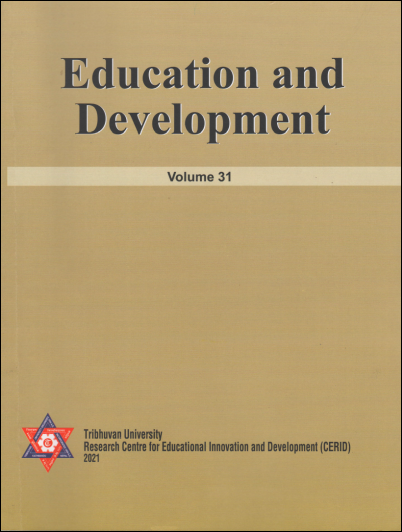A Study of the Nutritional Status of ECD Children in Pokhara
DOI:
https://doi.org/10.3126/ed.v31i01.60230Keywords:
Malnutrition, wasted, anthropometric measurement, moderate acute malnutritionAbstract
The goal of this study was to examine the relationship between socio-economic factors and the nutritional wellbeing of children in the early childhood development (ECD) centers operated in Pokhara. Both quantitative and qualitative data were collected from 100 ECD children staying in 10 different centers. Random sampling techniques were employed during field surveys; and data were analyzed using descriptive statistics, cross-tabulation, and the Chi-Square Test using SPSS software. The Body Mass Index (BMI) of each child was calculated, and the results were compared with the reference values to evaluate their nutritional status. The study revealed that approximately thirty-three percent of the children were experiencing moderate acute malnutrition (MAM) and sixty-seven percent were with normal nutritional status. It showed that mother‟s occupation had no significant impact on children‟s nutritional status. Additionally, no correlation was found between family type, and mother's education, and junk food consumption. However, child's family type, father's education, occupation, and income source had a significant impact on their nutritional status. The overall nutritional status of ECD children in Pokhara was found inadequate. It is suggested to improve the situation through collaborative efforts of parents, school teachers, local government and Nepal government by implementing appropriate policies for ECD children.
Downloads
Downloads
Published
How to Cite
Issue
Section
License

This work is licensed under a Creative Commons Attribution-NonCommercial 4.0 International License.
CC BY-NC 4.0. This license requires that reusers give credit to the creator. It allows reusers to distribute, remix, adapt, and build upon the material in any medium or format, for noncommercial purposes only.




